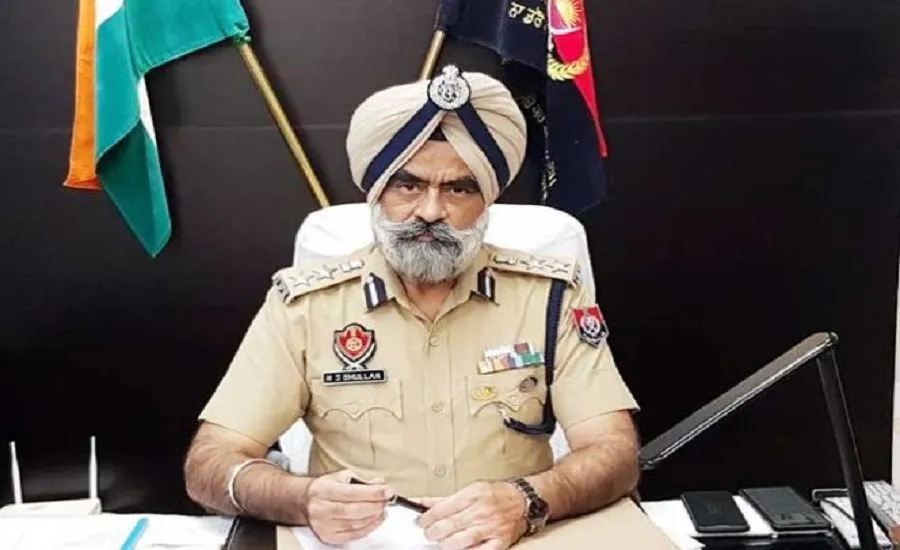Punjab IPS Arrested in Rs 5 Cr Bribe Scandal

Punjab IPS DIG Harcharan Singh Bhullar Nabbed in Explosive Bribe Scandal Involving Rs 5 Crore Cash Haul

In a stunning blow to Punjab's law enforcement integrity, senior Indian Police Service (IPS) officer Harcharan Singh Bhullar, serving as Deputy Inspector General (DIG) of Ropar Range, has been apprehended by the Central Bureau of Investigation (CBI) in a high-profile corruption case. The arrest stems from an alleged demand for Rs 8 lakh bribe, but investigations have unearthed a staggering cache of unexplained wealth, including over Rs 5 crore in unaccounted cash, luxury vehicles like Mercedes and Audi, 1.5 kg of gold jewellery, and a collection of 22 premium watches. This Punjab IPS corruption scandal has sent shockwaves through the state, raising serious questions about graft within India's police forces.
The CBI's operation unfolded after a formal complaint from Akash Batta, a local scrap dealer in Fatehgarh Sahib, who accused Bhullar of coercing him into paying the bribe to avoid false implication in a criminal case. Batta claimed the DIG sought an initial Rs 8 lakh payment, followed by recurring "settlement" fees routed through an intermediary named Krishna. This revelation has spotlighted deeper issues of police corruption in Punjab, where such demands allegedly undermine public trust and economic activities.
Acting on the complaint filed five days prior, the CBI registered a First Information Report (FIR) on Thursday and orchestrated a meticulously planned trap in Chandigarh's Sector 21. During the sting, Krishna was caught accepting the bribe amount on Bhullar's behalf, leading to a controlled phone conversation where the DIG confirmed the transaction and summoned the parties to his Mohali office. The CBI team swiftly moved in, arresting both individuals red-handed and initiating comprehensive raids across linked premises.
Unprecedented Seizures: From Cash Piles to Luxury Assets in Punjab Police Corruption Probe
The raids conducted by CBI officials at locations associated with Bhullar revealed a treasure trove of illicit assets, painting a picture of systemic graft. Investigators recovered approximately Rs 5 crore in cash—still under verification—as well as documents pertaining to high-value properties in Punjab. Among the seized items were keys to two opulent cars: a Mercedes and an Audi, symbolizing the lavish lifestyle allegedly funded by corrupt practices. Additionally, 22 luxury watches, locker keys, and about 40 litres of premium imported liquor were confiscated, alongside firearms including a double-barrel gun, pistol, revolver, airgun, and ammunition.
This haul underscores the scale of the unexplained wealth amassed by the accused, far exceeding his known sources of income. The 1.5 kg of jewellery alone points to potential money laundering, prompting the CBI to delve deeper into financial trails. In the context of India police corruption, such discoveries are not isolated but highlight a pattern where senior officers exploit their positions for personal gain, eroding the fabric of justice.
Bhullar's associate, Krishna, played a pivotal role in facilitating these transactions, as detailed in the CBI FIR. The intermediary's involvement suggests a network possibly extending beyond the duo, with the agency vowing to unravel any broader syndicate. As the probe intensifies, forensic audits of bank accounts and property records are underway to trace the origins of these assets.
The Trap Operation: How CBI Outmaneuvered the Alleged Bribe Takers
The CBI's trap was executed with precision, beginning with verification of Batta's allegations through discreet surveillance. Once corroborated, the agency laid the snare at a neutral location in Chandigarh, ensuring minimal risk to the complainant. Krishna's apprehension with the marked currency notes provided irrefutable evidence, triggering the subsequent call to Bhullar, where the officer unwittingly confirmed his complicity.
Upon arriving at the Mohali office, Bhullar was formally placed under arrest, marking a rare instance of a high-ranking IPS officer being caught in the act. This CBI arrest has invigorated anti-corruption drives, reminding the public that no one is above the law. Punjab authorities have cooperated fully, suspending Bhullar pending inquiry, while the state government faces scrutiny over internal oversight mechanisms.
- The bribe demand originated from threats of framing Batta in a fictitious offence.
- Monthly "settlements" were envisioned as a long-term extortion scheme.
- Raids spanned multiple sites, including residences and offices in Punjab.
Legal experts anticipate charges under the Prevention of Corruption Act, with potential for additional counts related to disproportionate assets. The case's publicity could catalyze reforms in police accountability across India.
Broader Ramifications: Impact on Punjab's Law and Order and National Discourse
This scandal arrives at a sensitive juncture for Punjab police, already under the microscope for various misconduct allegations. The exposure of such opulence—Rs 5 crore cash, Mercedes luxury, and elite watches—contrasts sharply with the force's mandate to serve the common citizen, fueling public outrage and calls for systemic overhaul. In a state grappling with border security and agrarian unrest, this bribe scandal erodes morale among honest officers and emboldens criminals.
Nationally, the incident amplifies concerns over IPS corruption, where elite cadre members wield immense power yet face accountability gaps. Advocacy groups demand mandatory asset declarations and whistleblower protections to curb such abuses. The CBI's role in this Punjab news development reaffirms its stature as the vanguard against high-level graft, though resource constraints often limit its reach.
For the scrap dealer community, Batta's courage in lodging the complaint sets a precedent, encouraging others to report similar extortions. Economic sectors vulnerable to official overreach, like small-scale trading, stand to benefit from heightened vigilance.
Historical Parallels: Patterns of Corruption in Indian Policing
Bhullar's downfall echoes previous high-profile cases, such as the 2021 arrest of a Maharashtra IPS officer in a multi-crore scam or the 2019 CBI probe into Uttarakhand police bribery rings. These episodes reveal entrenched issues: low conviction rates, political interference, and inadequate training on ethics. In Punjab, historical undercurrents of militancy have sometimes blurred lines between enforcement and exploitation.
Data from transparency watchdogs indicates that over 30% of police interactions in India involve petty bribes, escalating to major shakedowns at senior levels. The recovery of firearms and liquor in this case hints at possible lifestyle crimes beyond financial malfeasance. Reforms like the proposed Police Commission could introduce independent oversight, but implementation lags.
Civil society plays a crucial role, with NGOs monitoring FIR filings and advocating for victim support. This scandal may spur legislative pushes for stricter asset monitoring of public servants.
Ongoing Investigation and Future Safeguards Against Graft
As the CBI investigation progresses, interrogations of Bhullar and Krishna aim to expose accomplices and beneficiaries. Digital forensics on seized devices could uncover communication trails linking to other potential victims. The agency has invoked sections of the IPC alongside anti-corruption laws, ensuring a robust prosecution.
To prevent recurrences, experts recommend tech-driven solutions like blockchain for transaction tracking and AI for anomaly detection in officer finances. Punjab's administration has announced an internal audit of Ropar Range, while the Union Home Ministry monitors developments closely.
Ultimately, restoring faith in institutions demands collective action—from vigilant citizens to empowered probes. This Punjab IPS corruption scandal, though dismaying, offers a chance for catharsis and change in India's quest for transparent governance. Updates on the case will be tracked as they emerge in national headlines.
Comment / Reply From
No comments yet. Be the first to comment!











